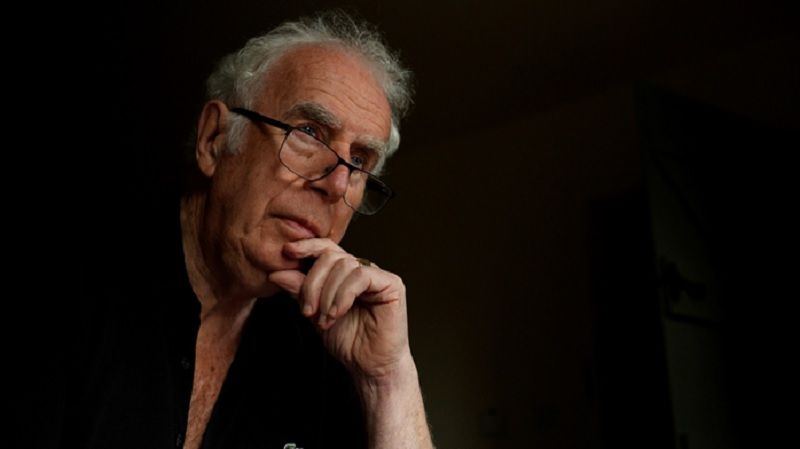Brendan Graham songs set to feature in Basque TV Documentary “Elbira”

ELBIRA is a one-hour, TV documentary, produced by Baleuko Produciones SL, which tells the story of iconic Basque feminist and pioneering educationist, Elbira Zipitria. Shortly due its premiere on Basque TV, it is already being shown throughout the Basque Country’s Ikastolas (cultural schools).
The soundtrack songs are Basque language versions of songs by Ireland’s Brendan Graham, in collaboration with Basque singer, harpist and composer, Olatz Zugasti.
The Story of Elbira
Elbira Zipitria, was an “andereño” (teacher) who, despite opposition from both Spanish and French Governments, fought for and revived teaching of Basque culture and history in the Basque language. Her pioneering work – initially conducted in hiding – much like the ‘hedge schools’ of Ireland – led to the creation of a teaching network throughout the Basque Country, today known as the Ikastolas.
The documentary commemorates the 40th Anniversary of Elbira’s death.
As Olatz Zugasti describes her, ‘’Elbira was a woman who knew what the Basque Country needed – that, apart from Maths, Spanish and English, Basque children had to learn about their own history, language and culture. She knew how to instil in Basque society a spirit that yearned for freedom and to express itself to the world in its own way’’.
The Soundtrack Songs.
“Mezularia”/ ‘’Messenger’’, music by Graham with lyrics in Euskera (a language isolate) by Zugasti is used in the scene where Elbira returns to Donostia (San Sebastian) with the passion to begin her pioneering work. The song has lines which translate back to English as:
‘’I hear that you hold the seed of wholeness,
That the Stars, the South and the Midday all dwell in you:
You become a dream, an eaglet’s flight,
Painting my blank canvas with the flow of life’’.
‘’Bizirik Gaudelako’’/ ‘’As We Are Alive’’
Olatz Zugasti describes how she first discovered the Irish songwriter:
‘’I first heard Isle of Hope, Isle of Tears by the wonderful Seán and Dolores Keane. It had a feeling of nostalgia but also of hope and freedom. I started singing it with lyrics I had already written. It seemed to work so I continued, and I loved how the marriage of my new lyric to Brendan’s existing melody, worked. I thought then that I should see if this song was owned by any living composer. So, eventually I got in touch with Brendan”.
The Basque singer/composer continues:
‘’Bizirik Gaudelako is a reminder that the Ikastola movement was created by all sectors of the Basque people. This reminder is important because the Ikastolas had been ‘legalized’ by the Spanish Government) to become only schools in the Basque language. It did not give the right to the schools to teach about our own history and culture. The documentary shows how Elbira was against that ‘legalization’. She saw beyond it, unlike the Basque politicians at the time.
I am very happy that the director caught the meaning of the song…seeming it to be written for Elbira’’.
‘I offer now this song to you,
My country’s faith to keep,
Like water fresh that pours from you,
From fountains old and deep’.
Bizirik Gaudelako is sung by Zugasti and schoolchildren at the closing of the documentary to thank the creators of the Ikastolas for their work.
Across the Basque Country, Graham’s and Zugasti’s song has become a rallying call from the Ikastolas to the Basque people to continue to keep their ancient culture alive. It is also widely performed by the legendary Benito Lertxundi Band and, in sheet music format has been distributed to the Ikastolas throughout the Basque Country’.
Brendan Graham described his reaction to the inclusion of his songs in ELBIRA.
‘’Normally, I like translations to reflect, at least generally, the theme of my original lyric. What I received from Olatz in relation to Isle of Hope, Isle of Tears, had nothing to do with what I had written about the story of Annie Moore…but it was beautiful and with an important message for the Basque people – that ‘while we are alive’, we must carry on the cultural flame of those who went before’’.
The songwriter added:
‘’It is a great privilege that, something written and composed in Ireland, where we suffered similar colonizing attempts to subvert our language and culture, should be used to extol the work of this extraordinary Basque woman. Elbira Zipitria fought, not alone for the survival of her language, history and culture but also for the rights of women’s voices to be heard’. Her voice certainly was heard…and continues to be heard’’.
Photo Credit: Thomas Conneally
Latest News
Music Creators
- Affinity Schemes
- Join IMRO
- Benefits of IMRO Membership
- IMRO Mobile App
- Members’ Handbook
- About Copyright
- Royalty Distribution Schedule
- IMRO Distribution Policies
- Competitions & Opportunities
- Travel Grant Form
- Irish Radio & Useful Contacts
- Other Music Bodies in Ireland
- Affinity Schemes
- Music Creator FAQs
- International Partners
- International Touring Guide
Music Users
- Do I Need a Licence?
- Sign Up for a Music Licence
- Pay Your Licence Online
- IMRO and PPI Tariffs
- Dual Music Licence Explained
- Music Licences for Businesses
- Music Licences for Live Events
- Music Licences for Broadcast & Online
- Music licences for Recorded Media
- Music Services B2B
- Music User FAQs
- What’s Your Soundtrack Campaign
- Terms & Conditions for IMRO Events Voucher Competition
- Cookie Policy
- Privacy Statement
- Disclaimer
- www.imro.ie
- Terms & Conditions
- © IMRO 2024
- Registered Number: 133321
Please select login
For Songwriters & Publishers
For Business Owners





